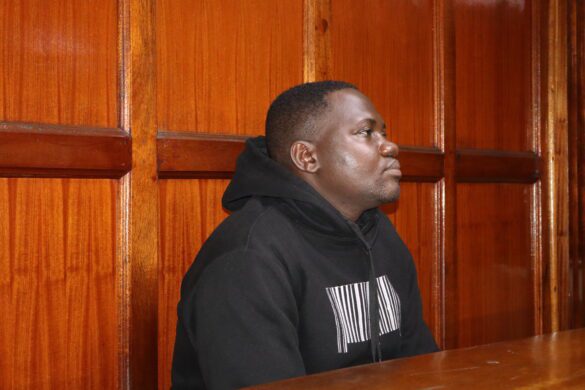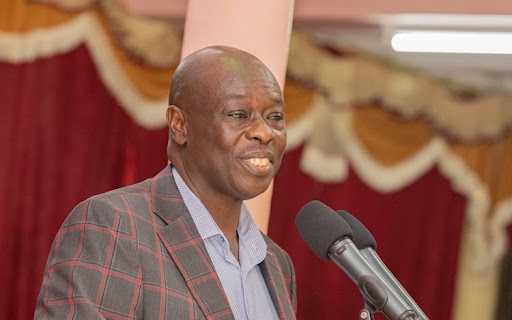
+
Police Constable James Mukhwana has been at the centre of
investigations into the death of teacher and blogger Albert Ojwang.
His recent confession, recorded with the Independent
Policing Oversight Authority (IPOA), revealed what happened on the night Ojwang
died in custody.
But beyond the headlines, who is Mukhwana?
Mukhwana is 31 years old.
He is a general
duties officer attached to the Central Police Station. At the time of Ojwang’s
death, he was serving as a cell sentry—an officer responsible for guarding
police cells and managing access.
According to his statement filed with IPOA, Mukhwana joined
the National Police Service in 2018.
He trained at the Administration Police Training College,
now known as Embakasi A Campus, and graduated in 2019.
After graduation, he was posted to Marsabit County where he
served for two years.
Following the police reforms and the merger of the Kenya
Police and Administration Police, Mukhwana was transferred to the Kenya Police
Service.
Mukhwana affidavit
In an affidavit filed with IPOA on Friday, Mukhwana disclosed that inmates who
fatally assaulted Albert Ojwang at a Nairobi police station were paid Sh2,000
to “discipline” him, not to kill him.
He admitted he received Sh2,000 from a senior officer to
facilitate the beating.
The money was allegedly used to buy alcohol for four
remandees who assaulted Ojwang in a cell.
"This is the truth of what happened. Ojwang’ was not
meant to be killed but to be disciplined as per instruction,” said Mukhwana in
the statement recorded at IPOA on June 13.
Mukhwana said that after being briefed about the operation
by his senior, he approached a long-time remandee inside the cells for the
mission.
He also said his colleague was briefed on the assignment.
“I told my colleague there is Sh2000 given out kuna mahabusu
anakuja boss anataka mmushughulikie kidogo yani discipline kidogo,” he stated.
“I told them he should look for people who could do the
job.”
The colleague, according to Mukhwana, identified an inmate
willing to mobilise a group to carry out the act, but they demanded alcohol
first.
“After a brief minute, the lead remandee told me he had the
people for the job. He handed me the Sh2,000 and told me the money should be
used to buy the alcohol since they cannot do such work without being high,” he
said.
Mukhwana said he took the money and went to the canteen to
buy the drinks, which he handed over before the beating commenced.
The inmates were moved to a separate cell opposite the
toilet, referred to as “the last cells,” where the attack on Ojwang took place
around 9:30 pm to 10pm.
Mukhwana further claimed that his colleague facilitated the
operation by taking over sentry duties at the cell block and calling the
selected inmates into the holding area.
Mukhwana expressed regret over the outcome of the operation.
“I am sorry for the death of Ojwang’. May God help them to
heal the loss. I know it is painful.”












